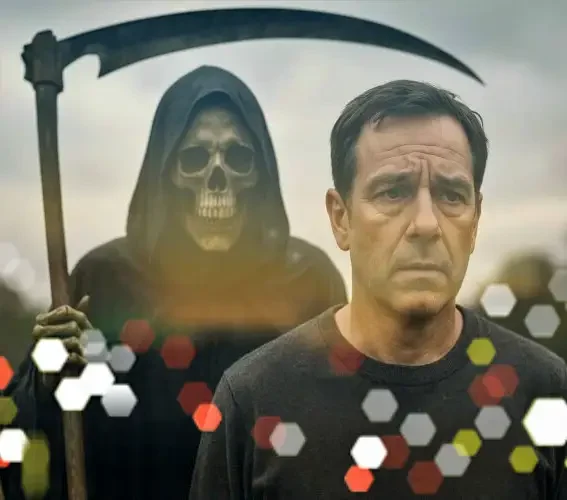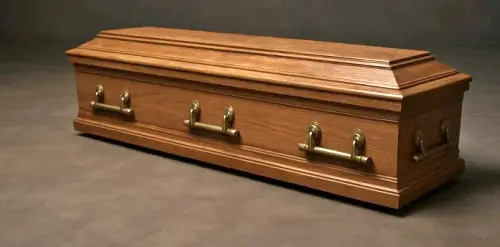Human fear. The perennial and often silent companion of humanity, serves as an unseen compass guiding our decisions, actions, and even our subconscious thought processes.
Overarching all other anxieties is one, all-encompassing, and ultimately unavoidable terror: The Fear of Death (Thanatophobia).
It is an archetypal shadow that trails us, making its presence known in the most unexpected moments: the unsettling lurch of an airplane, the unnerving silence of a dark alley, or the heavy weight of a difficult diagnosis.
We fear ceasing to exist, losing all control over our lives, and the tragic failure to complete our purpose.
If death is the principal existential dread that all of us eventually confront mentally, then a critical question arises: What is the immediate, second-greatest fear?
What is the terror that paralyzes us almost as profoundly as mortality, yet one we are often reluctant to acknowledge or admit?To truly grasp this hierarchy of human anxiety, we must first delve deeper into the nature of the fear of death itself.
Human Fear, Enigma of Mortality.
Why We Fear the Inevitable.
The dread of dying is an instinct deeply encoded within the consciousness of nearly every human being. Even when we deliberately push it to the recesses of our minds, it resides profoundly, embedded in the very nature of our awareness.
The Abyss of the Unknown.
The primary driver of thanatophobia is the terror of the unknown. No living person genuinely knows what awaits us “on the other side.” Is there a transition, a form of continuation, or merely eternal darkness and absolute void?
The human brain is inherently intolerant of uncertainty. We are neurologically wired to seek control and understanding, yet death stands as the single event we can neither halt nor fully comprehend.
This profound loss of control is overwhelmingly terrifying to the rational mind.
The Extinction of Self (Ego Loss).
Even more dreadful is the contemplation of the annihilation of our ‘Self’ the complete disappearance of all the thoughts, memories, habits, and accumulated experiences that constitute our unique personality.
Everything that makes us an individual dissolves, as if we had never existed. Even individuals who hold a steadfast belief in a soul or an afterlife still often express a profound fear of losing their current, familiar self.
This existential distress is magnified by the ancient instinct for self-preservation, compelling the body to cling to life at the most fundamental biological level. It’s not just the end of the body we fear; it’s the end of who we are.
The Legacy and the Loved Ones.
The fear extends beyond our own termination. We are intensely afraid for those we leave behind. How will they cope with our absence? Will they manage the grief and the practical challenges?
Will any trace of our existence, any meaningful legacy, remain? This is precisely why humans are so driven to create, to achieve, to leave a mark, and to live a life perceived as significant. The anxiety of being forgotten, or of our contributions being meaningless, fuels a tremendous amount of human aspiration and creation.
In this context lies a profound paradox: by truly acknowledging our finitude, we are empowered to genuinely appreciate life every dawn, every conversation, every connection.
The fear of death is terrifying, yes, but it concurrently serves as a potent and ultimate reminder of why we must fully engage with life. It is the shadow that defines the light.
The Second-Ranked Terror.
The Fear of Rejection and Public Scrutiny.
Transitioning from existential dread to social anxieties, multiple sociological and psychological studies consistently converge on the finding that, immediately following the fear of death, the most potent human fear is the dread of being ridiculed, judged, or outright rejected.
In simple terms: the terror of the stage, the fear of judgment, and the chilling specter of social isolation.
The Peril of Public Speaking (Glossophobia).
Public speaking (Glossophobia) routinely ranks among the most widespread and intense phobias globally, often surpassing the fear of heights, snakes, and even, in some surveys, death itself.
People are not afraid of the microphone or the lights; they are terrified of what others will think: What if I forget my words, what if I blush uncontrollably, what if I make a fool of myself, and everyone witnesses it?
This fear is not about failure in a task; it’s about a permanent, public failure of the self.
The Evolutionary Roots of Social Pain.
Scientists have discovered a compelling neurobiological explanation for this powerful phenomenon. When a person experiences social rejection or deep embarrassment, the same regions in the brain activate as those that respond to physical pain.
Essentially, social humiliation is processed by the brain as a genuine, albeit invisible, wound. Therefore, the fear of making a fool of oneself is not merely a sign of shyness or weakness; it is a primal, hardwired survival mechanism.
For our ancient ancestors, expulsion from the tribe or community often meant certain death, as resources and protection were shared. This ingrained instinct for belonging, and the terror of isolation, persists powerfully within the modern human psyche.
The Pervasiveness of Social Anxiety.
According to statistical data, approximately 7% of adults worldwide will experience Social Anxiety Disorder (SAD) annually, and up to one in ten individuals will endure a panic-level fear of judgment at least once in their lifetime.
When considering global, macro-level anxieties, people might rank illness, war, or the loss of loved ones highly. However, among personal, ‘internal’ fears the core vulnerabilities of the individual the fear of being rejected or publicly humiliated confidently secures the second position ranking just behind the fear of death.
The Symbolic Death.
This fascinating hierarchy reveals a crucial truth about human nature: we are Homo Socius (Social Man). For millennia, our very survival has been dependent upon our membership and acceptance within a group.
We fear the end of our life, but almost as profoundly, we dread the loneliness and isolation that symbolically represent our social or communal ‘death.’ To be completely alone, despised, or outcast is, for the human mind, an emotional echo of the ultimate existential peril.
Thus, the fear of death focuses on the final, physical void, while the fear of rejection focuses on the daily, social void a profound threat to our inherent need for connection and validation.
In conclusion, the two ultimate human fears mortality and rejection are two sides of the same coin: the terror of non-existence. One is the final absence, and the other is the absence of meaning and belonging.
It is these twin anxieties that drive much of human motivation, ambition, and, ultimately, our enduring search for both a purposeful life and meaningful connection.
Have a Great Day!





